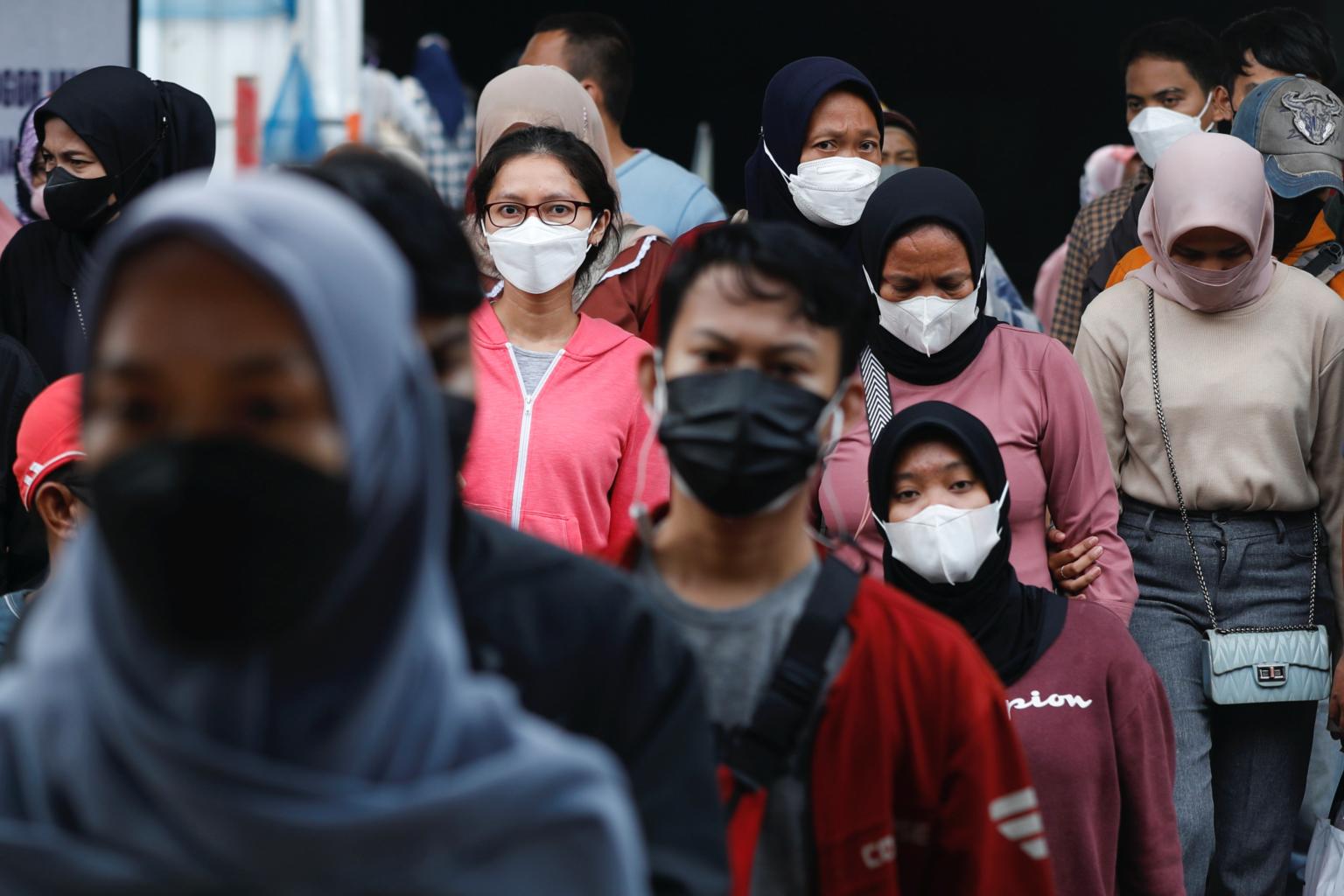Indonesia bans govt and company staff from taking leave around Christmas, New Year
Sign up now: Get insights on Asia's fast-moving developments

Over four million civil servants, two million staff in state-owned companies and many more in private firms will be affected.
PHOTO: REUTERS
JAKARTA - Indonesia has issued a ban on civil servants and workers in state-owned and private companies taking leave around Christmas and New Year, in a strong pre-emptive measure to avoid a Covid-19 flare-up.
This will affect about 4.2 million civil servants and two million workers in the state-owned companies, and many more in private firms.
In addition, "any arts, cultural, sports events are not allowed between Dec 24 and Jan 2", said a domestic affairs ministry's decree uploaded on Tuesday (Nov 23). "All town squares must be closed on Dec 31 and Jan 1."
The number of coronavirus infections and deaths in South-east Asia's most populous nation has flattened. More people are now going to places like restaurants and shopping malls compared with before the pandemic, according to Google's Covid-19 community mobility report.
Indonesia has been walking a fine line between having to support the momentum of economic recovery - as it reopened borders and lifted restrictions on movement and businesses - and having to prevent Covid-19 cases from resurging.
It always witnessed a surge in infections after past holiday breaks, including the Hari Raya holiday in May when millions of people, ignoring official pleadings, travelled around the vast archipelago. It is estimated that 2.2 million people travelled out of Greater Jakarta, the largest contributor to this movement of people.
Infections and deaths skyrocketed after the holiday, with hospitals and healthcare workers being pushed to limits and oxygen shortages hit.
"Preparation is under way to guard Christmas and New Year's Eve breaks based on the PPKM level 3 protocol," said the national police spokesman, Brigadier General Rusdi Hartono, referring to the second highest of the four-tiered movement restriction protocol.
Under level 3, restaurants, cafes, places of worship may be open at 50 per cent capacity. Still, additional restrictions on travelling may be further introduced for the upcoming holiday season, the government said.
The decree stipulates that local transport authorities, civil security officers in each of the more than 500 cities and regencies are tasked to operate their respective checkpoints, assisted by the police and the armed forces, during the holiday season.
Many parts of Indonesia have gradually moved towards normalcy after the country managed to bring under control the latest wave of the disease, caused predominantly by the Delta variant, that started after Hari Raya.
The seven-day average for infections peaked in mid-July with 50,000 cases daily. The number plunged to 1,700 early last month, and to 367 on Wednesday. Death rates have similarly dropped from the seven-day average peak of 1,700 in early August to around 100 in early October, and 10 on Wednesday.
Across Indonesia, retail and recreation mobility, which tracks mobility trends relating to places like restaurants, cafes, shopping centres, theme parks and cinemas, was 4 per cent higher compared with the baseline day early last year. Workplace mobility was, however, 5 per cent lower than the baseline day, according to the Covid-19 community mobility report.
Indonesia is taking extra efforts to contain the coronavirus and prevent any resurgence, which would prompt stricter movement restrictions that would hurt the economy.
Next year, it will hold the presidency of the Group of 20 nations and host the summit in Bali in the fourth quarter.
The Delta variant was first detected in India and reached Indonesia around March. By June, it had dominated more than 90 per cent of Covid-19 cases found, according to the government.


